Originally published at: Democracy Index: Most Democratic Countries in the World in 2022- Updated | GoVisaFree
- The “Absolute Musts” of a Democracy
- How EUI Measures Democracy
-
The Wrap-up
- 10 Least Democratic Countries in the World
-
FAQ
- What are the five most democratic countries?
- Is there a democracy index?
- What is the largest democratic country in the world?
- Is the United States a true democracy?
- What countries are pure democracies?
- Is the Netherlands a democracy?
- What is South Korea democracy index score?
- Safest Countries in the World
If you’re planning to relocate to a new country, you need to make thorough research regarding the characteristics of your destination. One of the most crucial of these characteristics is how democracy functions there.
We’ve gathered useful information for you about the 10 most democratic countries of the world specified by the Economist Intelligence Unit (EIU) in the Global Democracy Index 2021. The objective of the Index is to annually measure the levels of democracy according to countries all around the world.
According to the index, the most democratic countries in the world are respectively Norway, New Zealand, Finland, Sweden, Iceland, Denmark, Ireland, Taiwan, Australia, and Switzerland. Both Australia and Switzerland rank 9th, and the Netherlands is practically the 10th most democratic country.
Read on if you’re planning to relocate to one of these countries.
1st Norway
2nd New Zealand
3rd Finland
4th Sweden
5th Iceland
6th Denmark
7th Ireland
8th Taiwan
9th= Australia
9th= Switzerland
The “Absolute Musts” of a Democracy
A democracy, by its simplest definition, is a government form where the citizens either make the laws they’ll live under or elect representatives to make them their proxies. The first is called a direct democracy (aka pure democracy, true democracy) while the latter is called a representative democracy.
But what are the main characteristics that make up a democracy?
- A multiparty political system and a competitive environment
- Free and fair elections
- A transparent-open state that respects the laws
- A state that’s committed to peaceful power transferences
- An autonomous media that’s free from government control or influence
- Preservation of the civil liberties and political rights for every citizen, regardless of being part of the majority or a minority
Since we have a general sense of what a decent democracy should look like, let’s move on to the 10 countries that make the most of it.

 1. Norway
1. Norway
Democracy Score: 9.75/10
Norway, ranking first in the Economist Intelligence Unit’s Global Democracy Index 2021, is an excessively robust democracy. The country respects the civil liberties of its citizens, and the government is being held to account by civil society actors and independent media.
REGION
Europe
CAPITAL
Oslo
GDP PER CAPITA, PPP
$67,294 (2020)
Norway holds fair and free direct elections on a political stage where various political parties represent the citizens freely. There’s always been room for the opposition at this stage of politics.
Moreover, women, minority groups, and LGBTIQ+ people are well-represented and protected by anti-discrimination laws. Various segments of the population participate in the political processes with a set of absolute political rights.
Find below Norway’s scores on the items that assess the democracy levels of countries in the EIU Democracy Index.
- Electoral process and pluralism: 10.00
- Functioning of government: 9.64
- Political participation: 10.00
- Political culture: 10.00
- Civil liberties: 9.12
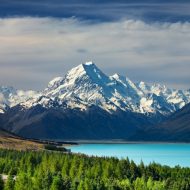
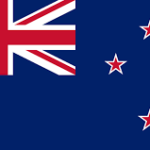 2. New Zealand
2. New Zealand
Democracy Score: 9.37/10
New Zealand is rated the second most democratic country in the world in the Global Democracy Index released by the EIU, by guaranteeing full civil liberties and political rights to its citizens. Moving up to second from fourth place, the country showed great democratic improvement in the past year.
REGION
Oceania
CAPITAL
Wellington
GDP PER CAPITA, PPP
$41,791 (2020)
New Zealand has been a country of free and fair elections for a good while now. The electoral system in New Zealand is a mixed-member PR (MMP), in which the citizens vote for a local candidate and a party to win the majority. Each district candidate that wins gets a seat, and the rest of the seats are distributed proportionally among the parties, in accordance with the votes that parties get. This system helps citizens have better representation in the parliament. It also encourages the parties to operate more effectively to win more districts.
New Zealand’s scores in the Global Democracy Index are as follows:
- Electoral process and pluralism: 10.00
- Functioning of government: 8.93
- Political participation: 9.44
- Political culture: 8.75
- Civil liberties: 9.71
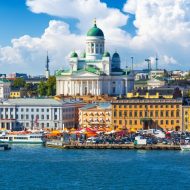
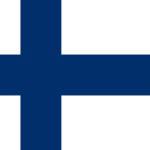 3. Finland
3. Finland
Democracy Score: 9.27/10
Ranking third in the Global Democracy Index of the EIU, Finland is a country that respects the freedom of speech and shows religious tolerance. Although discrimination toward minorities is not non-existent in society, ethnic minorities, women, and LGBTIQ+ people benefit from equal rights before the law.
GDP
$1.39 trillion
POPULATION
47.1 million
GDP PER CAPITA, PPP
$29,565
The parliamentary system in Finland conducts free and fair elections in an environment of vigorous multiparty competition. The judiciary in Finland is independent in practice and under the constitution.
- Electoral process and pluralism: 10.00
- Functioning of government: 9.29
- Political participation: 8.89
- Political culture: 8.75
- Civil liberties: 9.41
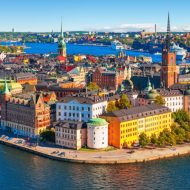
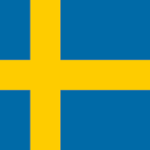 4. Sweden
4. Sweden
Democracy Score: 9.26/10
Having been rated fourth in Economist Intelligence Unit’s Global Democracy Index 2021, the parliamentary monarchy of Sweden operates free and fair elections as well as a solid multiparty system.
REGION
Europe
CAPITAL
Europe
GDP PER CAPITA, PPP
$51,925 (2020)
Sweden guarantees its citizens political rights and civil liberties by law and implements these laws in practice.
- Electoral process and pluralism: 9.58
- Functioning of government: 9.29
- Political participation: 8.33
- Political culture: 10.00
- Civil liberties: 9.12
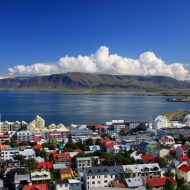
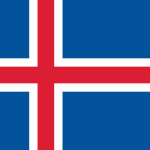 5. Iceland
5. Iceland
Democracy Score: 9.18/10
Iceland is the fifth most democratic country in the world, according to the EIU’s Global Democracy Index. The parliamentary democracy in Iceland has always been maintaining and improved civil liberties and political rights.
REGION
Europe
CAPITAL
Reykjavik
GDP PER CAPITA, PPP
$59,261 (2020)
However, there’s suspicion about the independence of the elected representatives from the business scene in the country. There’s a query over the autonomy of private media, as well.
- Electoral process and pluralism: 10.00
- Functioning of government: 8.21
- Political participation: 8.89
- Political culture: 9.38
- Civil liberties: 9.41
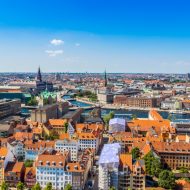
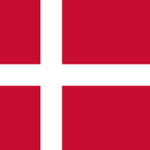 6. Denmark
6. Denmark
Democracy Score: 9.09/10
According to the EIU’s Global Democracy Index, Denmark ranks sixth among the most democratic countries in the world.
REGION
Europe
CAPITAL
Copenhagen
GDP PER CAPITA, PPP
$60,908 (2020)
The government of Denmark respects free speech and association while the citizens hold full civil liberties, political rights, and voting in an environment of free and fair elections. Although the country has robust democratic values and structures, it has failed to establish a smooth transition to granting fundamental rights and freedoms to immigrants.
- Electoral process and pluralism: 10.00
- Functioning of government: 8.93
- Political participation: 8.33
- Political culture: 9.38
- Civil liberties: 8.82

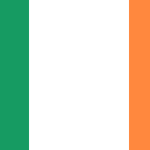 7. Ireland
7. Ireland
Democracy Score: 9.00
Ireland has ranked seventh in the EIU Global Democracy Index due to its political environment where civil liberties and political rights are well-respected. The country has a stable democracy, despite there’s corruption and mild societal discrimination.
REGION
Europe
CAPITAL
Dublin
GDP PER CAPITA, PPP
$83,812 (2020)
Ireland has a multi-party political system that allows a healthily competitive political stage. The judiciary is independent in Ireland, which is a strong indicator of democracy.
- Electoral process and pluralism: 10.00
- Functioning of government: 7.86
- Political participation: 8.33
- Political culture: 9.38
- Civil liberties: 9.41

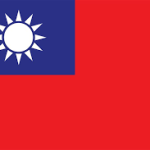 8. Taiwan
8. Taiwan
Democracy Score: 8.99
Ranking eighth in the Global Democracy Index 2021, Taiwan has a vigorously competitive, healthy democratic system that has enabled the peaceful power transfers of three parties to this day since 2,000. The country protects its citizens’ civil liberties and political rights quite unshakable.
REGION
Asia
CAPITAL
Taipei
GDP PER CAPITA, PPP
$55,724 (2020)
However, external intervention efforts of the Chinese government regarding Taiwan’s political infrastructure, policymaking, and media arouse concern. The risk of exposure of foreign migrant workers to exploitation is another issue that causes fractures in the country’s existing democratic harmony.
- Electoral process and pluralism: 10.00
- Functioning of government: 9.64
- Political participation: 7.78
- Political culture: 8.13
- Civil liberties: 9.41

 9= Australia
9= Australia
Democracy score: 8.90
Rated ninth together with Switzerland in EIU’s index, Australia has not a very long but stout history of maintaining and improving civil liberties and political rights.The independent judiciary, prevalence of the law, market economy, and autonomous media are the building stones of Australian democracy.
REGION
Oceania
CAPITAL
Canberra
GDP PER CAPITA, PPP
$51,680 (2020)
However, there are challenges to these values including the government’s failure to conduct humane policies regarding asylum seekers and attempts to control the press. In addition to these problems, there’s discrimination against LGBTIQ+ people and the government struggles to grant equal rights to First Nations Australians.
- Electoral process and pluralism: 10.00
- Functioning of government: 8.57
- Political participation: 7.78
- Political culture: 8.75
- Civil liberties: 9.41
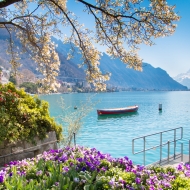
 9=Switzerland
9=Switzerland
Switzerland shares the 9th position with Australia in the Democracy Index. The nature of the political system in Switzerland depends on direct democracy and decentralization. The government of Switzerland is a multilingual coalition consisting of members of four prime parliamentary parties in the country.
REGION
Europe
CAPITAL
Bern
GDP PER CAPITA, PPP
$86,601 (2020)
There are frequent referendums that offer the citizens the chance to participate actively in politics and civil liberties and political rights are substantially respected. However, the policies and laws fall short of being adequate to protect immigrants and minorities against discrimination.
- Functioning of government: 8.93
- Political participation: 7.78
- Political culture: 9.38
- Civil liberties: 8.82
How EUI Measures Democracy
There’s no absolute way of measuring democracy but there are certain indicators that can be taken into consideration while building a methodology to specify the most democratic countries in the world.
On a scale from 0 to 10, the EIU assesses 60 indicators that are divided into five basic categories as follows:
- Civil liberties
- Electoral process and pluralism
- Functioning of the government
- Political culture
- Political participation
After rating each category in the specified scale, EIU calculates an overall average to present the Index. Democracy levels corresponding to scores according to the Index are as follows:
- Full democracies (8 to 10):
- Free and fair elections
- Political rights and civil liberties
- Strong political culture
- Satisfactorily functioning government
- Diverse and autonomous media
- An effective checks and balances system
- Independent judiciary
- A constantly flourishing democracy
- Flawed democracies: (6 to 8):
- Free and fair elections
- Political rights and civil liberties
- Inadequate or ineffective governance
- Underdeveloped political culture
- Weak political participation
- Hybrid regimes: (4 to 6):
- Irregularities regarding the elections
- Pressure by the government on opposition
- Weak political culture
- Malfunctioning or ineffective government
- Weak rule of law
- Weak civil society
- Pressure on the press
- Dependent judiciary
- Authoritarian regimes (0 to 4):
- No free and fair elections
- Absence of state political pluralism
- Abuse of civil liberties
- Controlled or state-owned media
- Dependent judiciary
- Censorship
- No freedom of speech
The Wrap-up
According to data the Index provides, democracy is unfortunately on a worldwide decline. However, these 10 countries still enjoy full democracies despite some of them facing small challenges occasionally.
With their advanced levels of protection of political rights and civil liberties, gender equality, and non-discrimination policies, these places are the “safe haven”s of the world.
10 Least Democratic Countries in the World
Find below the list of the 10 least democratic countries in the world specified by the Global Democracy Index prepared by the Economist Intelligence Unit:
10. Equatorial Guinea
There’s a repressive authoritarian regime in Equatorial Guinea that came to power through a military coup. The judiciary is dependent on the president and all kinds of oppression attempts get violent responses.
- Electoral process and pluralism: 0.00
- Functioning of government: 2.21
- Political participation: 2.22
- Political culture: 4.38
- Civil liberties: 0.88
9. Laos
The single-party regime of the oppressive Lao People’s Revolutionary Party restrains the civil liberties and political rights of the citizens.
- Electoral process and pluralism: 0.00
- Functioning of government: 0.43
- Political participation: 3.33
- Political culture: 4.38
- Civil liberties: 1.47
8. Chad
Chad has been under the rule of a military regime that came to power through a coup d’etat in April 2021. Any opposition is severely punished in the country.
- Electoral process and pluralism: 0.00
- Functioning of government: 0.00
- Political participation: 2.22
- Political culture: 3.75
- Civil liberties: 2.35
7. Turkmenistan
Political rights and civil liberties are practically non-existent notions in the repressive authoritarian state of Turkmenistan.
- Electoral process and pluralism: 0.00
- Functioning of government: 0.79
- Political participation: 2.22
- Political culture: 5.00
- Civil liberties: 0.29
6. Syria
The ongoing civil war and the oppressive regime in Syria have caused a horrid disruption in terms of civil liberties and the political rights of the citizens.
- Electoral process and pluralism: 0.00
- Functioning of government: 0.00
- Political participation: 2.78
- Political culture: 4.38
- Civil liberties: 0.00
5. The Central African Republic
Due to the armed unsettlement ongoing despite the peace efforts that took place between the relevant groups and the government, there’s a power vacuum and a severe security problem in the Central African Republic.
- Electoral process and pluralism: 1.25
- Functioning of government: 0.00
- Political participation: 1.67
- Political culture: 1.88
- Civil liberties: 2.35
4. The Democratic Republic of Congo
The political elites in the Democratic Republic of Congo have been manipulating the elections in the past few years. It’s hard to say that there are any political rights or civil liberties that are still in force in the country.
- Electoral process and pluralism: 0.75
- Functioning of government: 0.00
- Political participation: 2.22
- Political culture: 3.13
- Civil liberties: 0.88
3. North Korea
North Korea is a single-party state that’s ruled by a totalitarian dynastic dictatorship. There’s no room for freedom of speech or opposition in the country and political criticism is punished severely.
- Electoral process and pluralism: 0.00
- Functioning of government: 2.50
- Political participation: 1.67
- Political culture: 1.25
- Civil liberties: 0.00
2. Myanmar
The military overthrew the government in Myanmar in 2021 and confronted a civil disobedience movement, which it dealt with by implementing immense violence.
- Electoral process and pluralism: 0.00
- Functioning of government: 0.00
- Political participation: 1.67
- Political culture: 3.13
- Civil liberties: 0.29
1. Afghanistan
The elected government in Afghanistan was overthrown by the Taliban regime, which has restrained the rights of women and minorities. Afghanistan is the least democratic country in the world, according to the Index.
- Electoral process and pluralism: 0.00
- Functioning of government: 0.07
- Political participation: 0.00
- Political culture: 1.25
- Civil liberties: 0.29
Source: The Economist Intelligence Unit
FAQ
What are the five most democratic countries?
Nordic countries lead the list of the most democratic countries. New Zealand ranks second among the countries covered.
- Norway
- New Zealand
- Finland
- Sweden
- Iceland
Note that these countries are also among the world’s happiest countries.
Is there a democracy index?
Yes. There’s an annual Global Democracy Index that the Economist Intelligence Unit has been releasing for 12 years.
What is the largest democratic country in the world?
India is the largest democratic country in the world. It’s followed by the United States, Indonesia, Brazil, and Japan, respectively.
Is the United States a true democracy?
No. The United States is a representative democracy, meaning that its citizens elect government officials to represent them.
What countries are pure democracies?
The only pure democracies in the world are Appenzell Innerrhoden and Glarus, both of which are Swiss cantons.
Is the Netherlands a democracy?
With its parliamentary democracy that spiritedly protects civil liberties and political rights, the Netherlands ranked 10th in the Democracy Index of the EIU. The Netherlands holds strong democratic values and free and fair elections.
Nonetheless, there’s been a significant downfall in its ranks due to discrimination against immigrants and Muslims deriving partly from the abortive asylum policies.
- Electoral process and pluralism: 9.58
- Functioning of government: 8.93
- Political participation: 8.33
- Political culture: 8.75
- Civil liberties: 8.82
What is South Korea democracy index score?
The country’s score is 8.16 which puts it among the 20 most democratic countries. South Korea is a full democracy.
Read Next